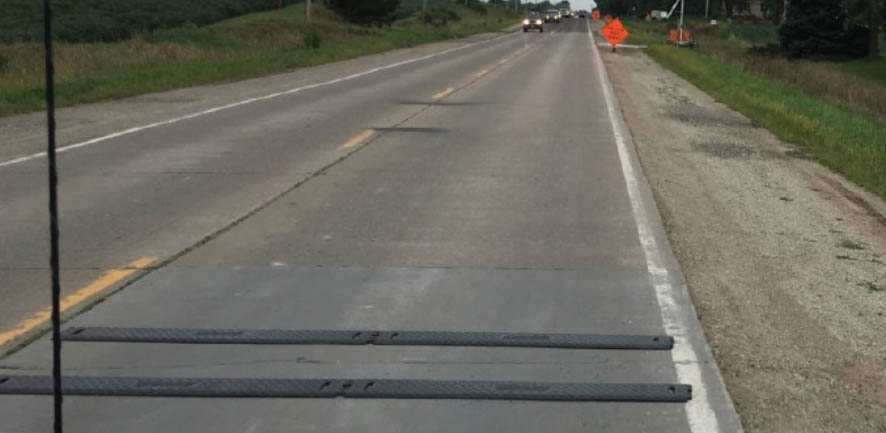October 08, 2021

Mizzou Engineers are helping state transportation officials investigate the effectiveness of temporary rumble strips in work zones.
Rumble strips are safety features placed over the road to alert motorists by causing an audible vibration transmitted from vehicle wheels. The Missouri Department of Transportation uses them ahead of work zones, said Henry Brown, principal investigator of the project and a research engineer in civil and environmental engineering.

Brown
“MoDOT primarily uses them when they have lane closures to try to slow people down and make them aware that a work zone is coming up,” Brown said. “For this project, we’re analyzing usage of rumble strips in the state to help the department update policies and practices around them.”
The work is being conducted under the Missouri Center for Transportation Innovation and includes researchers from the University of Missouri-St. Louis and University of Missouri-Kansas City. Praveen Edara, chair of Mizzou’s Department of Civil and Environmental Engineering (CEE), and CEE Professor Carlos Sun are co-PIs.
Over the coming months, researchers will study rumble strips from several perspectives. Brown and his team will observe and analyze driver behavior when temporary rumble strips are present.
“We’ll look at speed data from different work zones to see if they actually slow people down and to see if there are any unusual driver maneuvers such as swerving to avoid them,” he said. “We’ve also watched them being installed to see if installation or removal practices could be improved.”
Brown will also compare MoDOT’s use of rumble strips against other state practices and standards.
Researchers from UMSL will primarily focus on economics such as the cost of using them versus the benefits, and UMKC is analyzing safety data of work zones with the strips compared to work zones without.
The multi-campus MCTI team will present their findings to MoDOT in January.
The project is a great example of MCTI’s ability to bring together transportation experts, said center Director Bill Buttlar, Glen Barton Chair in Flexible Pavement Technology at Mizzou.
“MCTI allows us to collaborate with researchers who bring different areas of expertise and perspectives to the table,” Buttlar said. “This lets us provide MoDOT with really comprehensive information so they can make data-driven decisions that ultimately benefit all Missourians.”